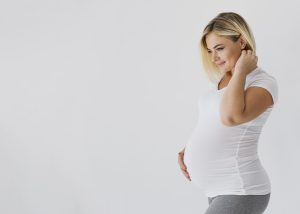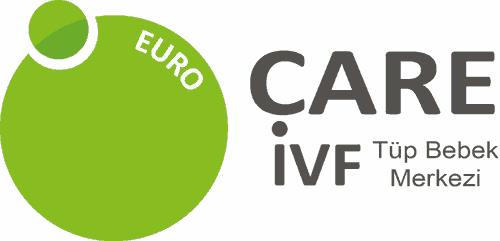 Pregnancy following IVF treatment is a special time full of excitement and anticipation. Although we’re past the peak, parents-to-be should still follow all precautionary measures to prevent exposure to or spread of coronavirus infection.
Pregnancy following IVF treatment is a special time full of excitement and anticipation. Although we’re past the peak, parents-to-be should still follow all precautionary measures to prevent exposure to or spread of coronavirus infection.
From protecting yourself before and during treatment to taking steps to ensure a healthy pregnancy to breastfeeding your baby in the right way, here you’ll find everything you need to begin the most amazing journey of your life — parenthood.
How to protect yourself before and during IVF?
If you’re considering IVF after the Covid-19 outbreak, know that your health and safety are top priorities, and we do everything to make sure that you get the best care in the safest way possible.
Alongside success rates, we have put safety measures in place to keep you and our medical staff safe. If you have a serious underlying medical condition, we may discuss altering your treatment to maximize your safety.
To avoid the risk of coronavirus transmission, the euroCARE IVF clinic accommodates a limited number of pre-scheduled visits. Disinfection is normally undertaken on a daily basis to maintain a consistent level of hygiene.
Before you come for your appointment at the clinic, we will ask you about any coronavirus symptoms (such as fever, coughing and shortness of breath). We may also ask you to have a test to check whether or not you have a Covid-19 infection. Moreover, we’ll check your temperature on entering the facility and will encourage you to wear a face mask and keep a 2-meter distance. This routine procedure will be performed before every clinic visit.
If your partner is not having a consultation or is not undergoing any testing/treatment that day, you should come to your appointment alone. However, you’re allowed to bring your partner to the egg retrieval and embryo transfer procedures.
Additional measures that we have put in place to minimise face-to-face interactions include virtual consultations and online follow-up appointments, receiving treatment protocols online and signing papers electronically.
All patients need to sign a code of conduct before the start of their treatment where they agree to avoid unnecessarily high-risk behaviours (whether at work and in private) that would put them at risk of infection. In addition to our tips on what to do and not to do after the embryo transfer, you’ll be provided with further detailed instructions and guidelines once your IVF treatment in North Cyprus is over.
I am pregnant. Should I be concerned about my health?
If your pregnancy test is positive, you may be worried about your and your baby’s health. Based on data, pregnant women are not more likely to get infected nor are they at greater risk of becoming seriously ill than other healthy non-pregnant women.
Pregnant women may experience only mild-to-moderate symptoms if they contract the coronavirus, including fever, coughing and shortness of breath/difficulty breathing. Additional symptoms may include sore throat, headache and loss/change to your sense of smell/taste.
Risk factors
You’re more likely to develop severe coronavirus symptoms and need hospital treatment if you’re:
- over the age of 35
- overweight or obese
- have pre-existing medical problems, such as high blood pressure and diabetes
- from a black, Asian or minority ethnic background
First trimester
No link has been established between Covid-19 in pregnancy and birth defects. However, high fever in the first trimester can increase the risk of certain birth defects, such as fetal growth problems and autism.
In addition, beware of symptoms like pelvic pain, cramping and/or bleeding during early pregnancy which are linked to ectopic pregnancy and miscarriage. If you notice any of these symptoms, seek urgent medical care.
Third trimester
If you are in your third trimester (over 28 weeks’ pregnant) you should practise social distancing, minimise contact with others, self-isolate and avoid travelling (this is also called shielding). Pregnant women, especially those who have serious heart disease, should be extra cautious as Covid-19 infection during this time may put you at a higher risk of some complications like preterm delivery.
Steps you should take to reduce exposure
Pregnant women and the rest of their households should take the following measures:
- Wash your hands regularly
- Use a tissue when you or anyone in your family coughs or sneezes, discard it and wash your hands
- Avoid contact with someone who has symptoms of coronavirus (e.g. high temperature, continuous coughing)
- Avoid non-essential use of public transport
- Work from home (if possible)
- Avoid large and small gatherings in public spaces (like pubs, restaurants, leisure centres and similar venues)
- Avoid gatherings with friends and family and keep in touch using remote technology (such as phone, internet and social media)
- Use telephone or online services to contact the euroCARE IVF clinic, as well as your GP and other essential services
Should I attend my antenatal appointments?
It is very important to attend antenatal appointments when you are pregnant so you can support a healthy pregnancy. If you prefer to have your partner or someone else with you, check with your doctor if this is possible.
You will have at least six face-to-face antenatal appointments in total. To prevent multiple journeys to the clinic, essential scans/tests and routine antenatal care may be carried out within a single appointment. To reduce transmission of coronavirus at appointments, wear face masks or cloth coverings. After you reach your third trimester, you’ll be asked about your baby’s movements at every appointment, whether in person or via phone/video.
If you have an urgent problem related to your pregnancy but not related to coronavirus, get in touch with your doctor immediately. If you have symptoms suggestive of coronavirus, contact your doctor and they will arrange a visit.
Your first postnatal appointment will be a face-to-face visit in your home following delivery. This will be day 1 if you gave birth to your baby at home or the first day after being in a hospital or a midwifery-led unit.
How to maintain good mental health?
There are a number of factors that may affect your mental well-being, including isolation, financial difficulties, insecurity and inability to access support systems. Symptoms of high stress may include:
- Changes in appetite
- Anxiety/fear about the pregnancy and delivery
- Poor quality sleep
- Problems concentrating
You may want to try the following stress-relieving practices and tips:
- Avoid watching the news around the clock.
- Join online support groups and forums for pregnant women and new parents.
- Attend online antenatal classes, which are also a good place to meet and exchange experiences with other pregnant women.
- Try relaxation techniques, such as meditating, deep breathing and gentle stretching.
- Stay connected with friends and family over the phone or through video conferences.
- Get enough sleep.
- Eat healthily (e.g. fruits and vegetables, lean proteins, fibres, low-carb foods)
- Try a new hobby, such as playing an instrument, learning a language, reading, or even making blankets, clothes and toys for the coming baby.
- If you’re experiencing anxiety, depression, or stress, consider online counselling.
- Ask for extra help like asking your partner or someone from the family to do the grocery shopping for you.
At every contact/appointment with a medical professional, you’ll be asked questions about your mental state. If needed, your doctor may recommend professional counselling options, which can be remotely provided (if possible). If you are experiencing domestic violence, please communicate this to your doctor who can provide information and support to protect you from harm.
What happens if I go into labour during my self-isolation period?
If you are in self-isolation and think you have gone into labour, contact your maternity unit for advice. In such cases, a special protocol will be provided which may include:
- Arriving via private transport (if possible)
- Being given a surgical mask upon entry
- Coronavirus testing
Your birth partner will be able to stay with you, but other visitors may not be allowed in the clinic.
Are babies at risk of Covid-19?
Children, including newborns, do not appear to be at high risk of becoming seriously ill with the virus.
All babies born to mothers with confirmed or suspected Covid-19 should be considered as infected while still waiting for the test results. Neonates with suspected Covid-19 infection should be isolated from other healthy neonates.
In addition, temporary separation of the newborn from the mother with confirmed or suspected Covid-19 is recommended to reduce the risk of mother-to-child transmission. This can be achieved in several ways, including a separate room, maintaining a physical distance of ≥6 feet between the mother and neonate, and placing the neonate in a temperature-controlled isolette when the baby is in the mother’s room. For mothers whose test results come back negative, separation may be discontinued.
It is important that your baby is feeding well and gaining weight. If your baby has problems feeding or if he/she has a fever, seems very tired and is highly irritable, please seek medical advice.
Tips for breastfeeding
Breast milk is the best food for newborn babies because it provides all the energy and nutrients needed for the first months of life. It also provides immunologic protection against many infections.
According to limited data, Covid-19 transmission through breast milk is not likely. If you have tested positive for Covid-19 and choose to breastfeed, wear a cloth face mask while breastfeeding and wash your hands before each feeding.
If you have coronavirus and choose to express breast milk (squeeze milk out of your breast and store it for later use):
- Use a non-shared breast pump
- Wear a cloth face mask during expression and wash your hands beforehand
- Properly clean the pump after each use, including all parts that come into contact with breast milk
It’s recommended that expressed breast milk should be fed to the infant by a person who does not have or is not at risk of Covid-19 and is living in the same house.
Additional safety measures for babies
To protect your baby from potential infection:
- Keep your baby at home and away from others as much as possible.
- If you have to take your baby out (e.g. a doctor’s visit), keep yourself and your baby at least 6 feet away from other people.
- Keep your baby away from anyone who is sick (including people in your home).
- Anyone who is in contact with the baby should wash their hands before and after touching it.
- Disinfect all surfaces at home on a daily basis.
Start your journey to parenthood the safest way possible with euroCARE IVF
Based on current data, pregnant women are at no higher risk of Covid-19 infection than women who are not pregnant. Although there is no extra reason for concern, mothers-to-be should follow anti-coronavirus safety measures before and during pregnancy following IVF treatment.
If you have further questions about the coronavirus and what it means for your pregnancy, don’t hesitate to contact us. Our multilingual support team will provide instructions and guidance to help you have a healthy pregnancy. Schedule a free video consultation now, and find the inspiration, education, and support you need to feel empowered on your path to becoming a parent!
